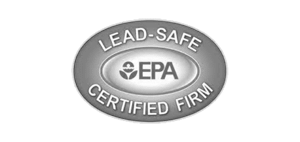If you’re a homeowner, you know how important it is to create a safe living environment for yourself and your loved ones. However, one of the biggest threats to your well-being may be lurking in your home without you even realizing it: mold. Mold is a type of fungus that can grow in damp, humid conditions, and it is often found in places like bathrooms, kitchens, and basements. But is it safe to stay in a house with mold?
The truth is that living in a home contaminated with mold can pose a significant risk to your health. Exposure to mold can lead to a variety of health problems, ranging from respiratory issues to allergies and sensitivities. It’s important to understand the dangers of mold and take steps to protect yourself and your family.
In this article, we’ll explore the risks associated with mold in your home and provide you with practical advice on how to detect, prevent, and remediate mold problems effectively.
Key Takeaways:
- Living in a house contaminated with mold can pose significant health risks.
- Mold can cause respiratory issues, allergies, and sensitivities.
- Detecting mold early and taking prompt action can help prevent mold problems from getting worse.
- Proper remediation and prevention strategies, including seeking professional assistance, are essential for effective mold removal.
- Prioritizing your health and well-being is key when dealing with mold in your home.
Understanding Mold and Its Effects
Mold is a type of fungus that can grow both indoors and outdoors. When mold spores land on a moist surface, they begin to grow and can spread quickly if the conditions are right.
There are many factors that contribute to the presence of mold in homes, including humidity, poor ventilation, and water damage. Mold can grow on any organic material, such as paper, fabric, and wood, and can often be found in areas with high moisture, such as bathrooms and kitchens.
Exposure to mold can have detrimental effects on your health. Respiratory issues, such as coughing and wheezing, are common symptoms of mold exposure. Allergies and sensitivities can also be triggered by mold, causing symptoms such as itchy eyes, runny nose, and skin rashes.
It’s important to understand the nature of mold and its effects to protect yourself and your family from potential health risks.
Identifying Mold in Your Home
Identifying mold growth in your living space can often be difficult, especially if it is hidden behind walls or in areas that are harder to access. However, it’s crucial to identify and address the growth as soon as possible. Ignoring mold issues can result in serious health problems and property damage.
Here are some common signs of mold growth that you can look out for in your home:
| Signs of Mold Growth | Description |
|---|---|
| Visible Patches | Look for spots that are usually green, black or white in color on walls or ceilings. |
| Musty Odors | If you detect a pungent, earthy aroma coming from certain areas in your home, it may indicate mold growth. |
| Water Damage | If there’s been any water damage to your house, mold growth is likely to occur in those areas in the future. Check for leaks or flooding in the basement or the roof, which are common breeding grounds for mold growth. |
It is important to note that mold can grow in various colors and shapes, and it may also exist in areas that are not visible to the naked eye. If you have any doubts or concerns, it’s highly recommended to get professional help to detect and test the type of mold present in your home. This will enable you to determine the appropriate remediation and prevention strategies that will work best.
Health Risks of Living with Mold
Living with mold in your home poses various health risks that can exacerbate existing health conditions and cause new ones to arise. Prolonged exposure to mold can lead to respiratory infections, such as bronchitis and pneumonia. Mold can trigger asthma symptoms in people with asthma, making it difficult to breathe. In some cases, it can even cause asthma in individuals who were not previously diagnosed with the condition.
Mold is also known to cause allergic reactions that can range from mild to severe. Symptoms may include sneezing, a runny or stuffy nose, red eyes, skin rash, and itchiness. In severe cases, mold exposure can cause anaphylaxis, a severe allergic reaction that can be life-threatening.
It’s important to note that the health risks of living with mold can vary depending on the type of mold present, the severity of exposure, and individual susceptibility to mold. If you suspect that you have mold in your home, it’s crucial to seek professional assistance to assess and remediate the problem before it becomes a serious health hazard.
One way to prevent mold-related health risks is to keep your home moisture-free and well-ventilated. Fixing leaks promptly, using exhaust fans in bathrooms and kitchens, and opening windows for fresh airflow are recommended. Additionally, it’s essential to properly and regularly clean areas prone to mold growth, such as bathrooms, kitchens, and basements.
Remediation and Prevention Strategies
Dealing with mold in your home can be a daunting task, but it is essential to take prompt action to ensure your well-being. Here are some practical tips to help with mold remediation and prevention:
| Strategy | Description |
|---|---|
| Address Moisture Issues | Mold thrives in damp environments, so it is crucial to fix any sources of moisture, such as leaks, condensation, or humidity problems. Keep indoor humidity levels below 60% and repair leaks and water damage promptly. |
| Improve Ventilation | Giving your home proper ventilation can reduce the risk of mold growth. Make sure your home has adequate ventilation in bathrooms, kitchens, and other moisture-prone areas. Consider using dehumidifiers to remove excess moisture from the air. |
| Properly Clean Affected Areas | If you find mold growth in your home, it is imperative to clean it up immediately. Use detergent and water to clean small areas, or hire a professional for larger cases. Wear protective gear such as gloves, goggles, and masks to avoid exposure. |
| Hire Professionals for Effective Mold Removal | While DIY strategies can help with minor mold issues, hiring mold removal experts is the most effective way to ensure thorough mold removal and prevent future growth. Experts have the knowledge, tools, and equipment to handle mold issues safely and efficiently. |
Keep in mind that mold remediation and prevention require a proactive approach to ensure a safe and healthy living environment. Use these strategies to protect your home and your loved ones from the risks of mold exposure.
Seeking Professional Assistance
Dealing with mold issues in your home can be a daunting task, particularly when it comes to thorough mold removal and preventing future growth. Instead of attempting to tackle the problem alone, seeking professional assistance from mold removal experts is crucial for ensuring a safe and healthy living environment.
Mold removal experts possess the necessary expertise and resources needed to effectively remove mold and prevent future growth. Their extensive training and experience in mold detection and removal enable them to identify the source of mold growth and implement effective strategies for mold remediation.
Professional mold removal companies use specialized equipment and tools to remove mold thoroughly and ensure that it does not return. They follow strict safety procedures to protect both you and the environment from harmful mold spores during the removal process.
By enlisting the services of professional mold removal experts, you can rest assured that your mold problem will be handled professionally and efficiently, leaving your home safe and mold-free for the long term.
Conclusion
After learning about the health risks associated with mold exposure, it’s clear that living in a house with mold is not safe. Mold can cause a variety of respiratory issues and allergic reactions, especially for those with compromised immune systems or pre-existing health conditions.
While it’s possible to identify and address mold issues on your own, it’s often best to seek professional assistance. Mold removal experts have the experience and resources necessary to ensure thorough remediation and prevent future growth.
Remember to prioritize your health and take action promptly if you suspect mold growth in your home. With the right strategies and professional help, you can create a safe and healthy living environment for you and your family.
FAQ
What are the health risks of living in a house with mold?
Living in a house with mold can pose various health risks. Exposure to mold spores can cause respiratory issues, including coughing, wheezing, and throat irritation. It can also worsen allergies, trigger asthma attacks, and lead to fungal infections in people with compromised immune systems.
How can I identify mold in my home?
There are several signs that can indicate the presence of mold in your home. Look out for visible patches of mold, discoloration on walls or ceilings, a musty odor, peeling paint or wallpaper, and water damage. If you suspect mold but are unsure, it is recommended to consult a professional for accurate testing and detection.
What are some prevention strategies for mold growth in the home?
To prevent mold growth in your home, it is important to address moisture issues. Ensure proper ventilation, especially in high-moisture areas like bathrooms and kitchens. Fix any leaks or water damage promptly, and control humidity levels. Regularly clean and maintain your home to prevent the accumulation of moisture and reduce the risk of mold growth.
Should I seek professional assistance for mold removal?
Yes, it is highly recommended to seek professional assistance for mold removal. Mold removal experts have the knowledge, experience, and necessary equipment to effectively identify, remove, and remediate mold issues. They can ensure thorough removal of mold spores and prevent further growth, providing a safer and healthier living environment.
Is it safe to stay in a house with mold?
No, it is not safe to stay in a house with mold. Prolonged exposure to mold can lead to various health problems, particularly respiratory issues and allergies. It is crucial to address mold problems promptly and take necessary measures to remove mold from your home to ensure your well-being and the health of your family.







